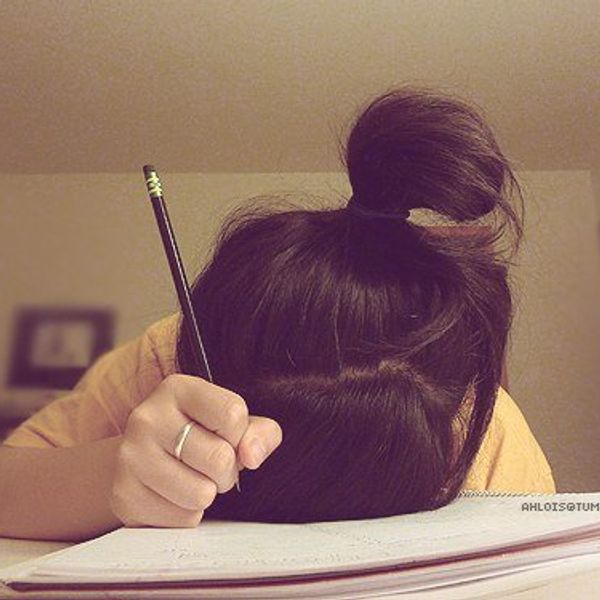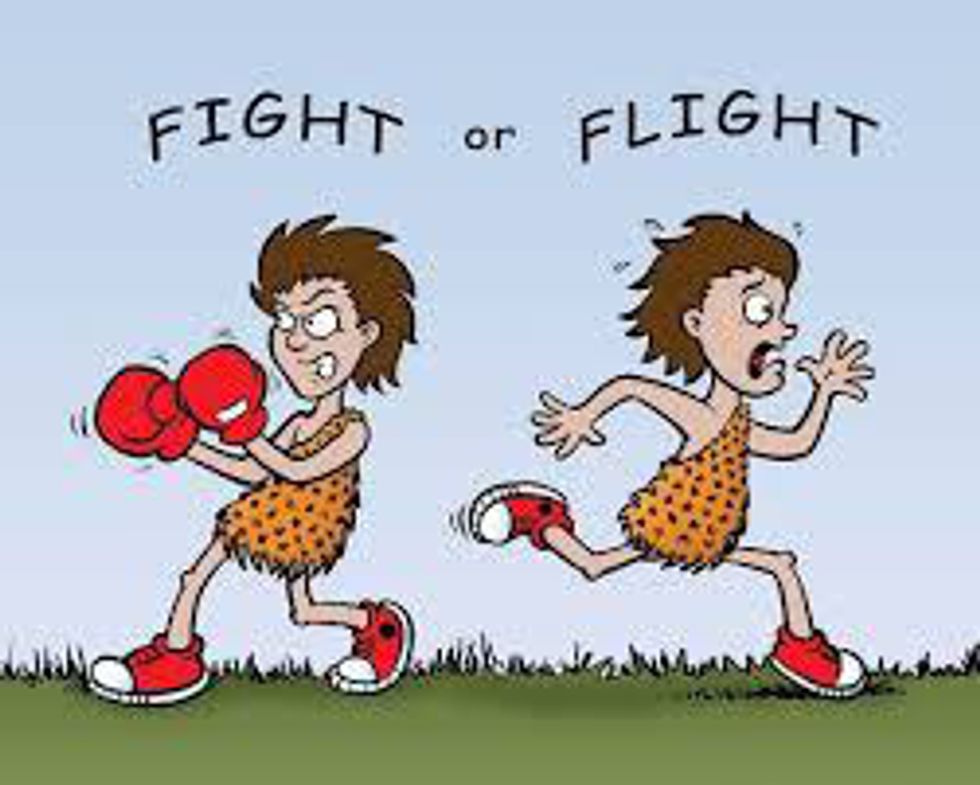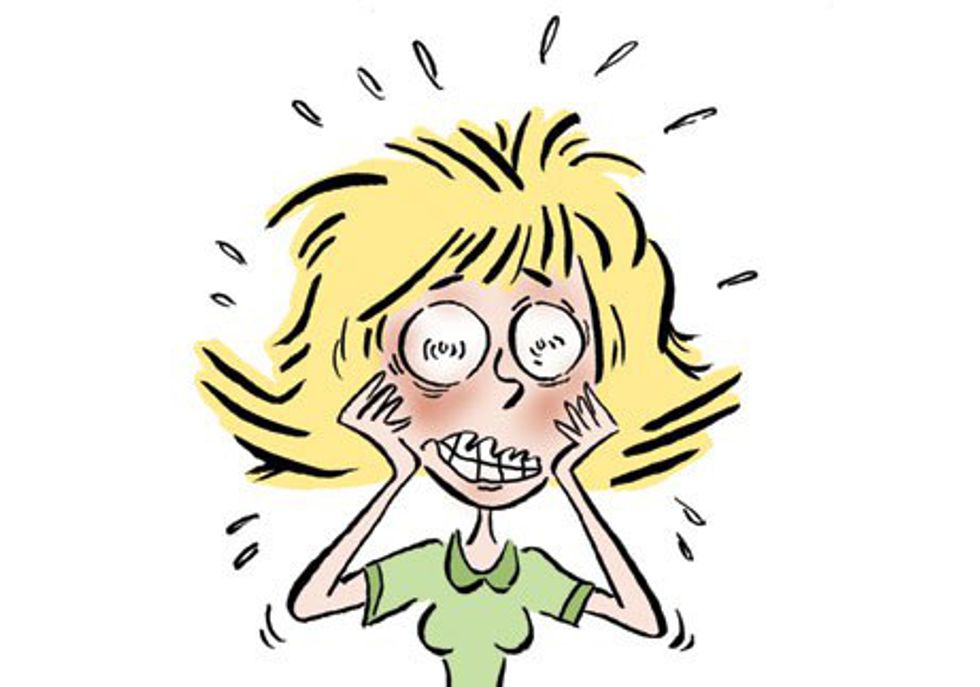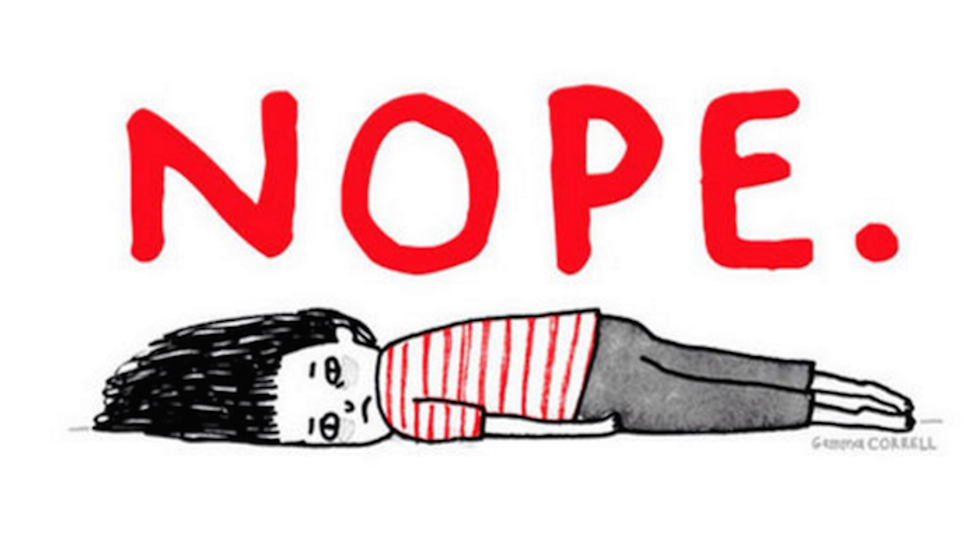I am simply staring at the blank screen. I have no words, no thoughts, no ambition. Where am I? Thirty minutes have passed with no movement; there is only the systematic blinking of my eyelids. Tick-tock, tick-tock, tick-tock. Who am I? I have no sense of time. My past life of smiles changed to one of tears. Now, I have nothing. The tears have ran dry and my emotions have evaporated. I am nothing. I have reached the final stage of stress: exhaustion.
You, too, may be dealing with the effects of stress and not even realize it. Often times, teenagers believe they are having mental breakdowns or are victims of emotional disorders, which can sometimes lead to self-induced death. However, in all reality, these changes in behavior may all link back to stress. As teenagers, we are all overwhelmed with the ideas of life in general. What am I going to do with my life? Where will I go to college? What will I major in? How will I find a job? How will I make my mark on this world? Who will I impact? There are so many questions, yet not enough answers. We need time without pressure. The stress of a dwindling clock cripples us. Therefore, throughout this article I would like to discuss the three significant stages of stress. These stages include the Alarm stage, Resistance stage, and Exhaustion stage.
The first stage of stress is the Alarm stage, or the ‘Pepto Bismol’ stage. According to Magill’s Medical Guide, stress is a psycho-physiological response within an individual animal to a perceived danger. Therefore, as quoted by Dr. Martin V. Cohen, when a person experiences this “perceived danger,” or stress, in the Alarm stage, your nervous system immediately sends an emergency signal to your brain. This is met by the body’s “fight or flight” response. You get more energy and your limbs work faster. This is clearly visible in your facial expressions as fear or tension. As diagnosed by the Centre for Studies on Human Stress, the general indications of this stage are increased heart rate, breathing, blood sugar levels, blood pressure, headaches, back pain and jaw pain. However, your digestion completely stops and heartburn, diarrhea, and constipation quickly follow, hence why it’s called the Pepto Bismol stage. Emotional distress such as irritability, resentment, anger, anxiety, and a depressed state can also take place. Integrative Therapeutics describes this process through Hans Selye’s stress model, stating that the sympathetic nervous system is stimulated as the body’s resources are mobilized to meet the threat or danger. Following this stage, or the Alarm stage, is the second stage of stress, or the Resistance stage.
The Resistance stage can also be categorized as the ‘Rum n’ Coke’ stage, as decided by the Human Stress Centre. You may notice that you abound with nervous energy, take on too much, and are always rushing and are often late. You also feel overwhelmed and overworked, over-aroused and short-tempered, and anxious and/or tense most of the time. More symptoms include the inability to turn off your mind when you go to bed, consistent worrying and expectations of the worst, and an increase in your intake of tobacco, alcohol, and unhealthy foods. Your memory will also start to fail you, and you will often get colds and the flu. According to Holistic Online, this is the body’s response to long-term protection. If the adaptation phase continues for a prolonged period of time without periods of relaxation and rest to counterbalance the stress response, the previously listed diseases will eventually sprout to full effect. Integrative Therapeutics describes this process once again through Hans Selye’s stress model, specifying that the nervous system attempts to return many functions to normal levels while the body remains on alert. Surpassing the Alarm and Resistance stages and concluding the three stages of stress is the Exhaustion stage.
The Exhaustion stage is the third and final stage of stress, gaining its title the "Glass and Water" stage. As defined by CSHS, this stage is accompanied by full-out chronic stress. Therefore, the glass of water is for all the pills you might have to take because of the wear and tear on your body caused by the repeated activation of the stress response system. The general indications of this stage are heart disease, insomnia, depression, and complete burnout. According to Jacob Gan’s “STRESS the Silent Killer,” you are now totally tired and drained out of all energy. You do not even have the desire or the drive to do your work or live your life. This stage symbolizes a breakdown of your system and your basic physical existence itself. As described by currentnursing.com, if the stressor continues at this stage beyond the body’s capacity, you exhaust resources and become susceptible to disease and death. Integrative Therapeutics concludes this process through Hans Selye’s stress model by reciting that the nervous system is finally completely and entirely exhausted.
I previously stated that as teenagers, stress, as seen through stages, is inevitable. However, now that the signs and symptoms of each stage have been laid out, we can all better equip ourselves to face the daily battle of stressful warfare. I have described, in depth, the three specific stages of stress: Alarm, Resistance and Exhaustion. Therefore, though you all experience daily stress, the question now is, “How will you deal with it - will you fight, or will you flee?”























